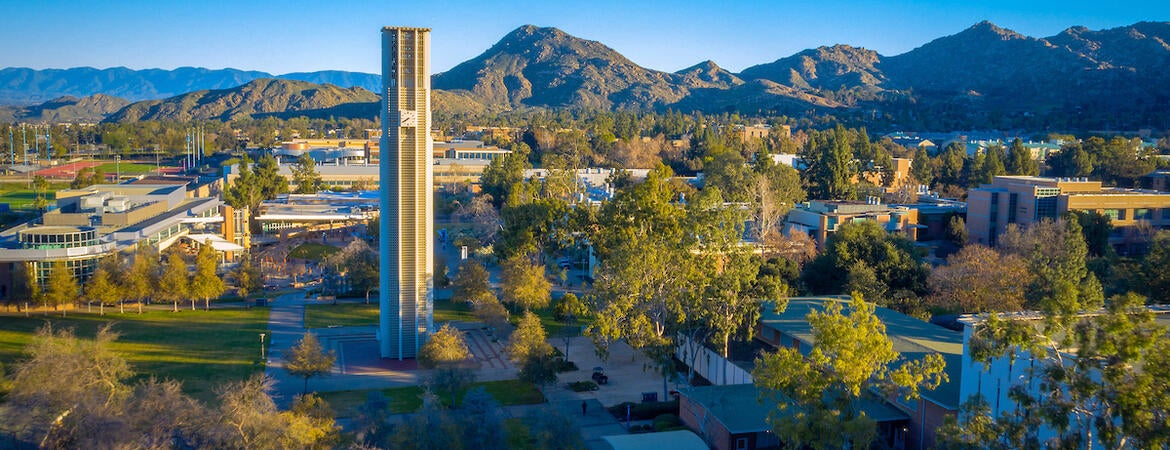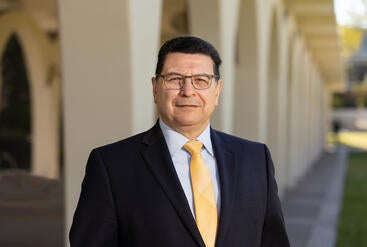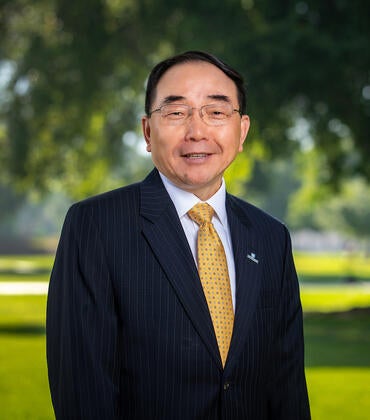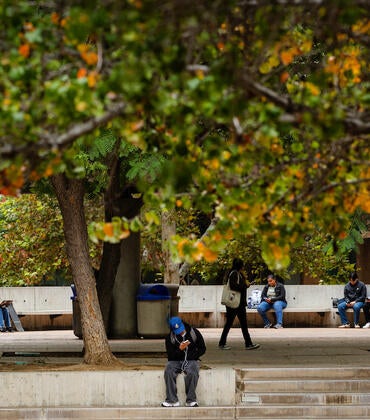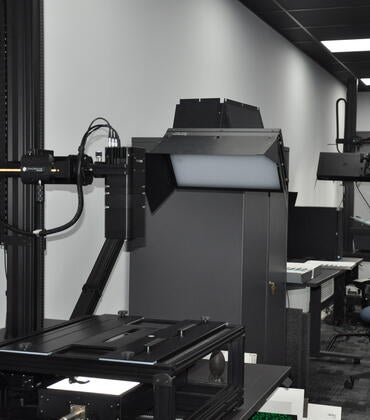UC Riverside aims to offer researchers a chance to collaborate and pursue ambitious projects with centralized funding and administrative support through the first Campus Interdisciplinary Research Center.
Provost and Executive Vice Chancellor Elizabeth Watkins and Rodolfo Torres, vice chancellor for Research and Economic Development, announced the creation of the new center in February, inviting applications with a May 1 deadline.
Torres said the center will be unlike any other on campus in terms of its structure, scope, funding, reporting, oversight, and review. It’s long been a goal at UCR to create a center with this type of structure, which will include administrative support from the Office of Research and Economic Development, or RED, and new funding from the central campus budget.
The hope is center participants will be able to use that support to pursue more ambitious research that will gain national and international recognition and to seek multi-million funding grants, Torres said.
“It’s a way to enhance what we represent and continue to attract great faculty and students,” he said. “It will be a jewel in our crown of creativity.”
The creation of a center with this type of infrastructure builds on one of the initiatives in the campus strategic plan, UCR 2030, which Watkins led. The third strategic goal calls for expanding the visibility of UCR locally, nationally, and globally.
“The newly created CIRC will excel in interdisciplinary research and scholarly work,” Watkins said in a February announcement. “It will capitalize on the demonstrated success of existing research teams, further creating and incentivizing synergy among faculty, students, and staff across campus. The goal is to attract new individuals and additional external resources to UCR, aiming to achieve even greater national and international recognition.”
To qualify for the Campus Interdisciplinary Research Center designation, proposals must involve multiple faculty members from at least three different colleges or schools; show a record of excellence in interdisciplinary collaborations; demonstrate an external funding record, and have the potential to apply for large federal grants.
Researchers must also have a long-term sustainable plan, as the center will receive a five-year funding commitment and may be renewed for additional five-year periods.
Another important piece will be the center’s director, who is expected to have a visible role, championing the research. The new funds will cover half of the director’s salary, freeing up their ability to concentrate on administrative duties, Torres said.
Any research area will be considered, although Torres said he expects proposals to capitalize on areas where UCR is already strong.
RED will start evaluating the applications after the May 1 deadline. An announcement of the selected proposal is expected in June so that it will be funded with the new fiscal year on July 1.
Only one project will be selected as the inaugural center, but Torres said he expects additional centers will be supported as exciting new proposals are brought forward.
Watkins and Torres have been holding engagement meetings with faculty members about the proposal over the last few months and have a received a positive response, Torres said.
“People honestly think this is overdue,” he said. “They’re happy seeing it coming now. There’s a lot of excitement.”
